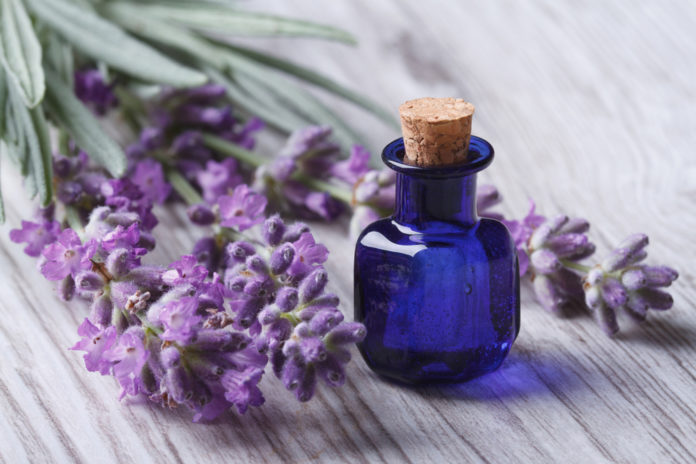Feelings of anxiety are common, especially in a fast-paced world with life demands and responsibilities pulling from diverse angles. In fact, anxiety disorders are the most common form of mental illness in America, affecting approximately 6.8 million adults. Calm and redirect those anxious feelings with these natural herbs, supplements, and remedies.
What Is Anxiety?
Anxiety is a normal part of life, involving feelings of worry or fear. Additionally, some people may even be overtaken by anxiety, ultimately interrupting with daily functions and activities. These individuals may have an underlying genetic predisposition or exposed to an environmental factor, including dealing with shyness in childhood, having gone through a stressful life event, or being female or a family history of anxiety. Though there are several different types of anxiety disorders, a general anxiety disorder may surface restlessness, irritability, muscle tension, an inability or difficulty to control worry, and problems falling asleep. Anxiety is often managed via medications, psychotherapy, and support groups. However, natural herbs, supplements, and remedies may offer further benefits to managing anxiety.
7 Natural Herbs, Supplements, and Remedies for Anxiety
1. Chamomile
Stemming from daisy-like plants and flowers, brewing up a cup of herbed, chamomile tea can calm your anxiety. While contemporarily utilized for its soothing and relaxing properties, sound research also indicates chamomile can calm nerves, subsequently shrinking anxiety-related thoughts. Along with relaxing nerves, chamomile has additional pronounced benefits.
2. Lavender
Acting as one of the greatest herb supplements for anxiety, lavender definitely deserves some recognition! Lavender oil displays to be effective in reducing anxiety not only based anecdotally, but on comprehensive research as well. Research has shown lavender to help with restlessness and nervousness, even being as effective as medication, further reducing the worry of drug dependence. Lavender oil has also shown to reduce anxiety leading up to an anticipated and nerve-provoking dental visit.
3. Omega-3 Fatty Acids
Largely known for its role in heart health and protection, omega-3s have also shown to successfully reduce feelings of anxiety along with lessening feelings of depression and sleep disturbances. Though the exact mechanism is unclear at this time, omega-3s have shown to reduce levels of inflammation, subsequently reducing anxiety intensities. The healthy fat are found in fatty fish, flaxseed, and almonds.
4. Sunshine
The sunshine vitamin (or more recognized as vitamin D) is a valuable natural remedy for anxiety. Individuals lacking in vitamin D can compromise both medical and psychological health. Exposing yourself to the sun and embracing the great outdoors can increase dopamine levels, also known as that “feel good” hormone, and boost energy and mood!
5. Yoga
Yoga continues to offer not only physical benefits, but mental benefits as well. Encompassed in the mental benefits lies its ability to consistently show relief in stress and anxiety in a number of studies. Find out which yoga is best for you or try this full-body yoga workout.
Additional Considerations
6. Watch Caffeine Intake
Coffee has shown to protect the brain against depression and age-related diseases, yet caffeine in excess can spark jitters and exacerbate anxiety symptoms. Too much caffeine leading up to bedtime can also disrupt quality sleep cycles, further causing agitation and anxiousness when tired. To reduce anxiety-provoking behaviors, moderate caffeine intake to best suit your lifestyle. Additionally, limit caffeine-containing items in the afternoon and evening hours leading up to bedtime to foster improved sleep patterns.
7. Nutrient Deficiencies
Vitamins and minerals play a large role in all aspects of health, especially when balanced in the body. But as witnessed in a vitamin D deficiency, the following nutrients may surface feelings of anxiety if too little (or even too much) is absent (or present) in the body:
Vitamin B12
A lack of this B vitamin has shown to link to panic attacks, depression, fatigue, and anxiety. Food sources include animal products, including fish, meat, poultry, eggs, and milk and its products. Those who reduce or eliminate animal products may benefit from a supplement or increasing their intake of breakfast cereals fortified with vitamin B12.
Magnesium
Magnesium is a mineral involved in hundreds of body reactions. Among those processes, mental health is included, with a magnesium deficiency suggested to facilitate feelings of irritability and behavioral disturbances. Leafy greens, nuts and seeds, fish, beans, dried fruits, and dark chocolate are among some of the various sources that delivers magnesium.
Zinc
A severe deficiency in zinc has shown to increase anxiety while too much may compromise optimal mental function. Foods rich in zinc comprise oysters, red meat, poultry, dairy products with vegetarian and vegan options including grains, pumpkin seeds, cashews, and cocoa powder.
*Before supplementing with any sort of nutrient, it is important to consult with a healthcare professional. They can further guide you to correct dosage and reduce the risk of toxicity.









